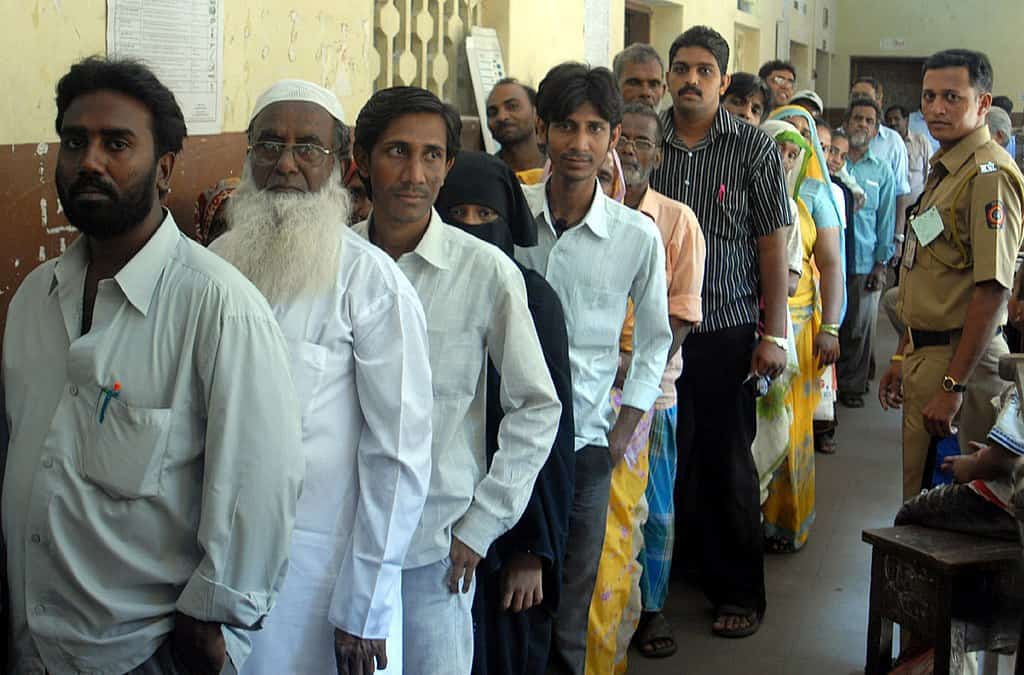With less than five months for the upcoming Brihanmumbai Municipal Corporation (BMC) election in February 2022, political workers from across parties face uncertainties. It is unclear which section of the local population will be able to vote for them, causing confusion on the ground as citizens await clearance from Maharashtra’s State Election Commission.
Why are constituencies being redrawn now?
Electoral constituencies or electoral wards are altered according to changes in sizes of local populations, to ensure equal representation and a fair division of geographical areas so that no political party has an advantage.
“Each corporator has an average population of around 50,000 people under them as per the rules governing the delimitation. The process is undertaken before every election to take stock of the changes in population in a particular constituency,” says Adv Tulip Miranda, Corporator from Kalina and also a practicing advocate in the Bombay High Court.
How is the situation in the 2021 BMC election different?
The BMC is using the base population figures from the 2011 census to conduct the 2022 civic elections, since the pandemic didn’t allow a census in 2021. This 11-year gap will fail to factor in the pandemic’s impact on movement of populations due to migration and the pandemic-related deaths, while determining the voters for the 2022 elections.
Population figures of constituencies are critical for local civic elections since they determine who will vote for which corporator/candidate. Very often local political workers/corporators work in an area allocated to them by their political parties or that aligns with their electoral constituency.
After the delimitation rejig, their respective areas could be deleted from their constituencies, and hence, their base voters may not be able to vote for them. Areas outside their jurisdiction could be included in their constituency thus forcing them to scramble for support from unfamiliar populations. With elections scheduled early next year, there might not be enough time to connect with new voters. This is not including the regular change of reservation in constituencies for various categories like women, scheduled castes, other backward castes etc which are determined on the basis of a lottery.

How does it affect the political fraternity?
“There is a lot of indecisiveness in the air among corporators and political workers of all parties this time around. We don’t know our ward boundaries this time or who can vote for us or if our ward will get reserved for a particular category. If our area is rejigged beyond a limit, we may have to seek a ticket from the changed constituency. Post that, it will be left to the political parties to determine if they want to renominate their corporators or not,” says Miranda, who had replaced her husband Brian Miranda as a corporator from Kalina, after their constituency got reserved for women in 2017.
The mismatch between the reality and the electorate
The population shift from the island city to the suburbs should have ideally led to more corporators in suburban Mumbai but that may not be the case yet. The number of corporators will continue to be 227 throughout the city, only their electoral boundaries will be rectified. “Though many new buildings have come up in my electoral ward, it’s not clear how many of the new residents have completed formalities to be eligible to vote here,” says Yogesh Bhoir, ex-corporator from Kandivli whose wife has now replaced him as a corporator in his electoral ward.
Bhoir, who hails from the Koli community that falls under the Other Backward Community (OBC) category, says that in the current circumstances, a political worker needs to have a backup in place to face any kind of rectification or changes in their constituencies.
According to Miranda, a large proportion of those residing in the slums in her electoral ward happen to be migrants and may not be registered voters in her area. There could be a critical mismatch between the number of actual residents and the voting electorate that could reflect in the policies decided by the corporation.
Read more: Lockdown 2021: What changed for the Mumbai migrant worker’s journey back home
What do the political parties say?
Major changes in ward boundaries as per the 2011 census had affected political calculations in a big way in the last 2017 elections. Almost all the 227 ward boundaries were rejigged to align with the shift in population from the island city to the suburbs. Hence, no one wants to take any chances now. The Congress’ opposition leader in BMC, Ravi Raja wrote to the election commission in June accusing that the boundaries of 45 electoral wards were deliberately skewed to favour a particular party and demanded a reassessment.
Leader of the Bharatiya Janata Party (BJP) Prabhakar Shinde challenged the accusation by stating that the changes in 2017 were made by the Election Commission as per rules and since no major topographical changes have taken place, a status quo could be maintained. The party also accused the Shiv Sena of deliberately trying to delay the Census as reported here.
Maharashtra’s State Election Commission issued a notification in August confirming that the delimitation of the civic electoral wards would be based on the 2011 census.
The Shiv Sena has displayed its support towards the rectification of boundaries, alleging that in the 2017 elections, they lost 30 seats to the BJP because boundaries were modified. The BMC says that it is following the EC guidelines.
What do civic activists say?
Godfrey Pimenta of the Watchdog Foundation says that keeping information from the public is deliberate and has become the norm. “Though the rectification in constituencies is supposed to be put up in public domain to call for suggestions and objections from the general public, very often, the authorities are tight-lipped. The advertisements calling for public comments are very often put up in obscure newspapers and outside the political fraternity, very few get to know of the details of this entire exercise,” says Pimenta.